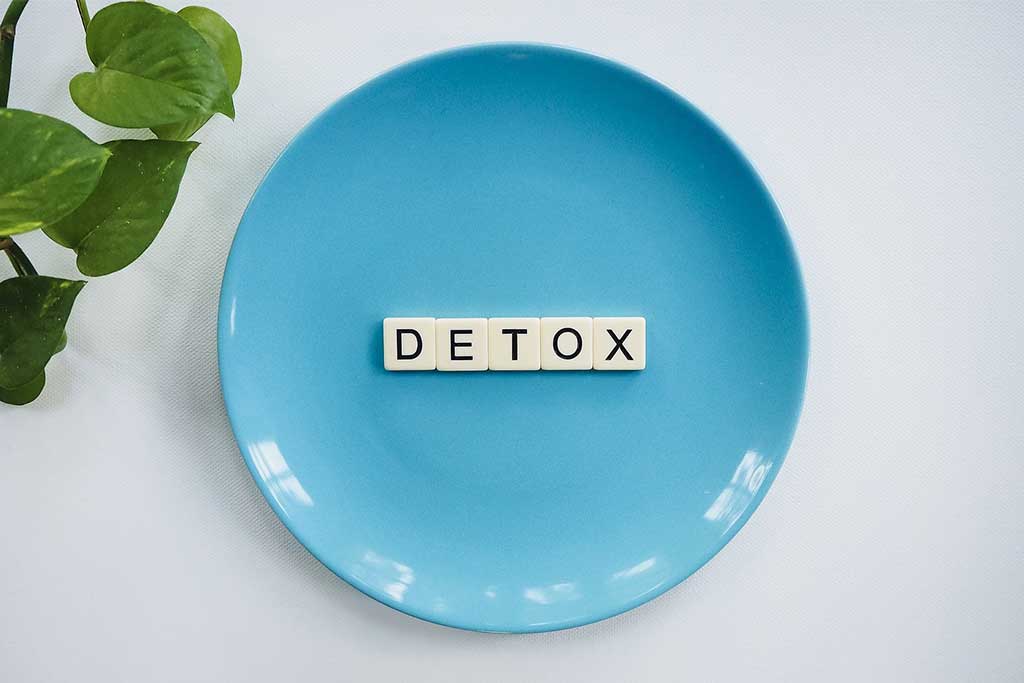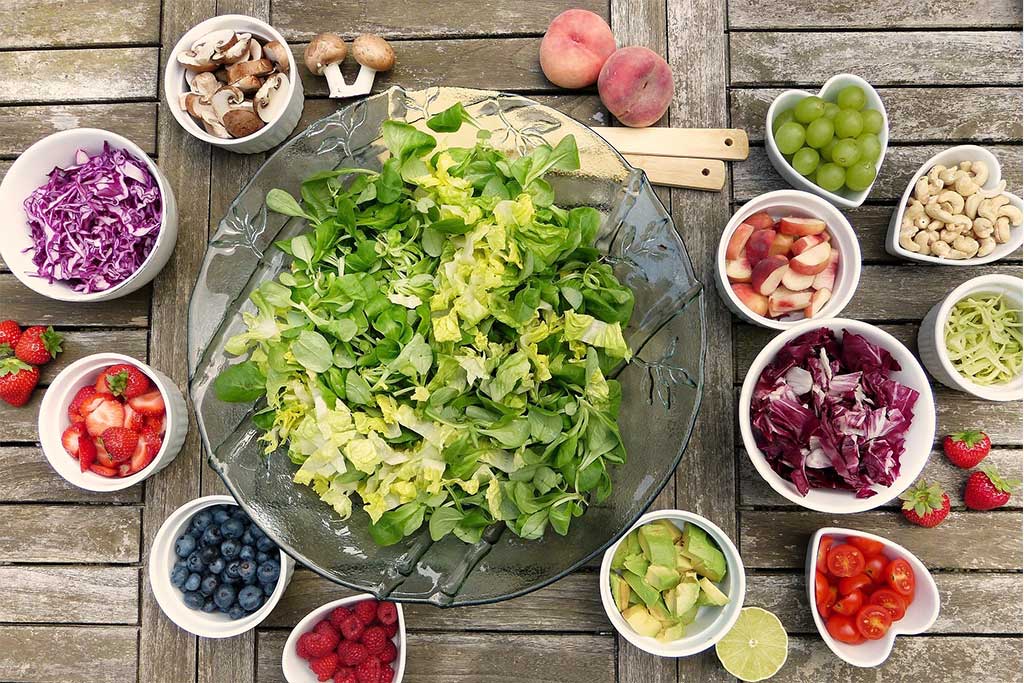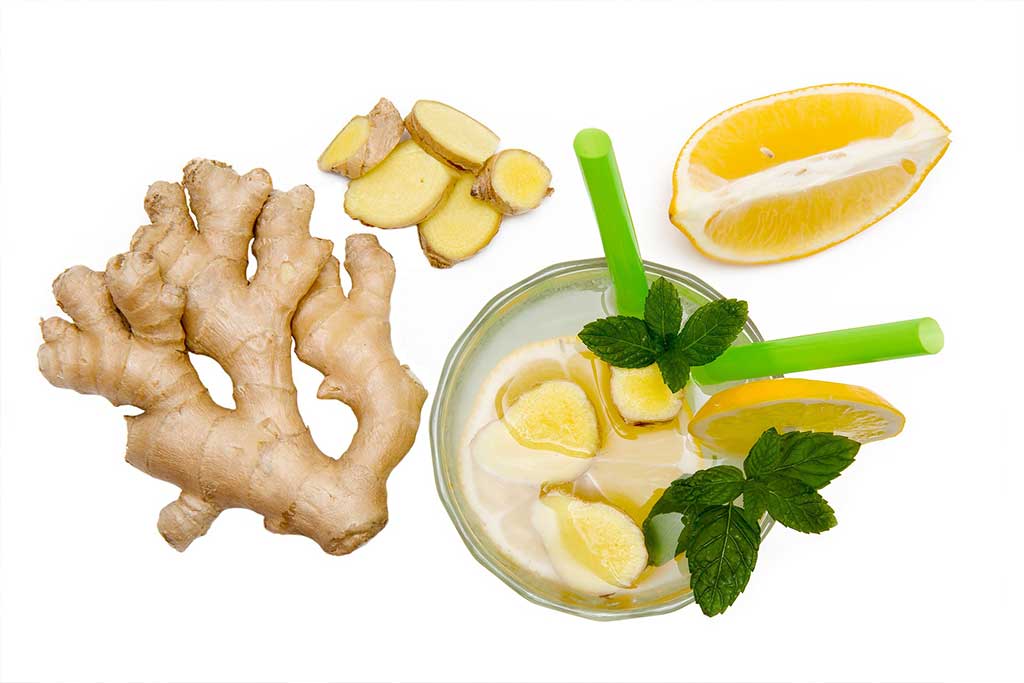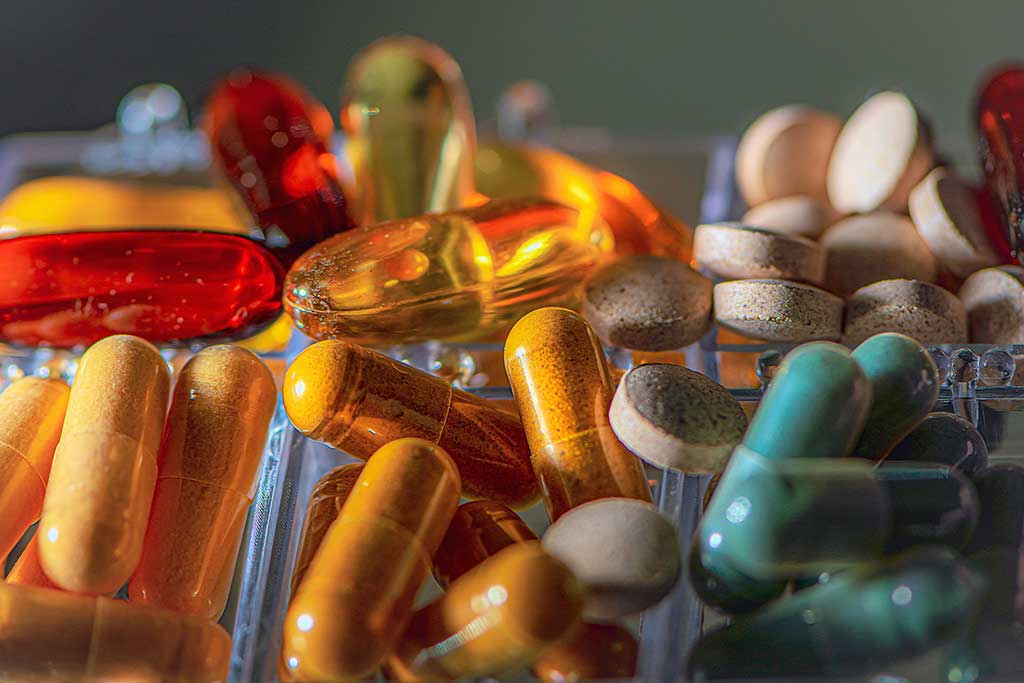How to Detox Your Body? Exploring the Basics of Cleansing and Renewal
In today’s world, detoxification has become a buzzword associated with health and wellness. From detox diets to liver cleanses the concept of ridding the body of toxins has gained significant attention.
Table of Contents:
1. Introduction
2. Understanding Detoxification:
3. Importance of Detoxification:
4. Methods of Detoxification:
5. Potential Benefits of Detoxification:
6. Embracing a Balanced Approach to Health
7. FAQ: Common Questions about Detoxification

1. Introduction
Detoxification, or detox for short, is a process that aims to eliminate toxins and impurities from the body. It has gained significant attention in recent years as people strive to enhance their overall well-being and optimize their health. In this comprehensive section, we will explore the basics of detoxification, including its definition, importance, methods, and potential benefits.
2. Understanding Detoxification:
Detoxification refers to the body’s natural process of eliminating harmful substances and toxins. It primarily occurs in organs such as the liver, kidneys, lungs, skin, and gastrointestinal tract. These organs work together to filter and eliminate toxins, promoting a healthier internal environment.

3. Importance of Detoxification:
In today’s world, our bodies are constantly exposed to a range of toxins. These toxins can come from various sources, including the environment, processed foods, pollutants, medications, and lifestyle choices. Over time, the accumulation of toxins can potentially overwhelm our natural detoxification systems, leading to imbalances, inflammation, and compromised health. Engaging in detoxification practices can help support and enhance the body’s natural detox processes, assisting in the elimination of toxins and promoting overall well-being.
4. Methods of Detoxification:
Detox Diets and Cleanses:

Detox diets involve temporarily modifying your eating habits to promote toxin elimination and encourage weight loss. Common examples include juice cleanses; water fasting, and elimination diets. These diets typically emphasize whole, unprocessed foods, and restrict or eliminate processed foods, added sugars, caffeine, alcohol, and other potential toxins. While these diets can be effective in the short term, it’s essential to approach them with caution and consult with a healthcare professional, as they may not provide all the necessary nutrients for long-term use.
Detox Drinks and Recipes:

Detox drinks and recipes typically involve the consumption of specific beverages or the preparation of meals using ingredients believed to have detoxifying properties. These ingredients may include lemon, ginger, green tea, dandelion root, and various herbs known for their antioxidant and cleansing properties. While some of these drinks and recipes may support the body’s detoxification processes, it’s important to remember that they should be part of an overall balanced diet and not be relied upon as the sole method of detoxification.
Liver Detox:
The liver is a vital organ responsible for detoxifying and metabolizing substances in the body. Engaging in practices that support liver health is crucial for effective detoxification. This can be achieved by maintaining a healthy diet, staying hydrated, avoiding excessive alcohol consumption, and minimizing exposure to liver-damaging substances such as certain medications or environmental toxins.
Detox Supplements and Products:

A variety of detox supplements and products are available in the market, claiming to support the body’s detoxification processes. These can include herbal remedies, probiotics, fiber supplements, and specialized detox formulations. It’s important to approach these products with caution and consult with a healthcare professional before use, as their efficacy and safety can vary.
Natural Detox Methods:

In addition to specific diets and supplements, several natural detox methods can be incorporated into daily life. These include practices such as dry brushing, sauna therapy, lymphatic massage, deep breathing exercises, and engaging in regular physical activity. These methods aim to support the body’s natural detoxification systems, improve circulation, and enhance lymphatic flow.
5. Potential Benefits of Detoxification:

While individual results may vary, engaging in appropriate detoxification practices may offer several potential benefits. These can include increased energy levels, improved digestion, clearer skin, enhanced mental clarity, reduced inflammation, weight loss, and a strengthened immune system. However, it’s important to approach detoxification as part of a balanced lifestyle and not rely solely on short-term detox measures for long-term health benefits.
6. Embracing a Balanced Approach to Health
Detoxification is a multifaceted process that plays a vital role in maintaining overall health and well-being. By understanding the basics of detoxification, including its definition, importance, methods, and potential benefits, we can make informed choices to support our body’s natural detoxification systems. Remember to consult with a healthcare professional before making significant changes to your diet, or lifestyle, or incorporating detoxification practices to ensure they are appropriate and safe for your individual needs.

7. FAQ: Common Questions about Detoxification
In this FAQ section, we address common questions about detoxification, providing concise and informative answers to help you make informed choices regarding your health and wellness.
Q1: Are detox diets and cleanses safe?
A1: Detox diets and cleanses have gained popularity as a means to cleanse the body and promote overall health. However, their safety and effectiveness have been a topic of debate among healthcare professionals. It’s important to approach detox diets and cleanses with caution and consider several factors before deciding to engage in them.
- Nutritional Adequacy: Many detox diets and cleanses involve severe calorie restriction and the elimination of entire food groups. This can lead to nutrient deficiencies if followed for an extended period. It is essential to ensure that any detox diet or cleanse provides adequate amounts of essential nutrients to support the body’s functions.
- Individual Health Status: Detox diets and cleanses may not be suitable for everyone. Individuals with certain medical conditions, such as diabetes, heart disease, kidney disease, or pregnant and breastfeeding women, should avoid or seek guidance from a healthcare professional before engaging in detox diets. These conditions require specific dietary considerations, and sudden changes may have adverse effects.
- Potential Side Effects: Some people may experience side effects while on a detox diet or cleanse. These can include headaches, fatigue, irritability, dizziness, and gastrointestinal disturbances. These side effects are often temporary and may be a result of the body adjusting to the changes. However, if the side effects are severe or persistent, it’s important to discontinue the detox program and seek medical advice.
- Sustainable Lifestyle Changes: Detox diets and cleanses are often short-term approaches. To maintain long-term health benefits, it is crucial to focus on sustainable lifestyle changes that promote a balanced and nutritious diet, regular physical activity, stress management, and adequate sleep. Relying solely on periodic detoxes may not address underlying lifestyle habits that contribute to toxin accumulation.
- Lack of Scientific Evidence: The scientific evidence supporting the effectiveness of detox diets and cleanses is limited. While some studies suggest short-term benefits in terms of weight loss and improved biomarkers, long-term effects, and overall health impact remain unclear. More research is needed to determine the safety and efficacy of various detox protocols.
The safety of detox diets and cleanses depends on various factors, including nutritional adequacy, individual health status, potential side effects, sustainability, and scientific evidence. It is advisable to consult with a healthcare professional or registered dietitian before embarking on a detox program to ensure it is safe and appropriate for your specific needs. It is important to prioritize long-term lifestyle changes that support overall health rather than relying solely on periodic detoxes for optimal well-being.
Q2: Can detox drinks and recipes replace meals?
A2: Detox drinks and recipes are often promoted as a way to cleanse the body and support detoxification processes. While they can be a beneficial addition to a balanced diet, it is generally not recommended to replace regular meals with detox drinks or recipes for an extended period. Here are some considerations to keep in mind:
- Nutritional Adequacy: Detox drinks and recipes may provide certain nutrients and antioxidants, but they are often low in calories, protein, healthy fats, and other essential nutrients required for overall health. Replacing meals with detox drinks can lead to nutrient deficiencies if followed for an extended period.
- Satiety and Energy Levels: Detox drinks and recipes are typically low in calories and may not provide the same level of satiety and sustained energy as a well-balanced meal. Without adequate calories and nutrients, you may experience hunger, low energy, and difficulty concentrating throughout the day.
- Sustainability: Sustainability is key when it comes to maintaining a healthy eating pattern. It is important to develop long-term dietary habits that are practical, enjoyable, and nutritionally balanced. Relying solely on detox drinks for sustenance is not a sustainable approach and may lead to frustration or a cycle of restrictive eating.
- Social and Psychological Factors: Meals often play a significant role in social interactions, cultural traditions, and emotional well-being. By replacing meals with detox drinks, you may miss out on these important aspects of nourishment and connection. It is essential to have a healthy relationship with food and prioritize a well-rounded approach to eating.
- Individual Needs: Every individual has unique nutritional requirements based on factors such as age, sex, activity level, and health conditions. Detox drinks may not address these specific needs and may not be suitable for everyone. It is advisable to consult with a registered dietitian or healthcare professional to determine an appropriate and personalized approach to nutrition.
While detox drinks and recipes can be a part of a healthy diet, they are not intended to replace regular meals in the long term. It is important to focus on a well-balanced eating pattern that includes a variety of nutrient-dense foods to meet your nutritional needs. If you are considering incorporating detox drinks or recipes into your diet, do so as a supplement to meals rather than a replacement, and consult with a healthcare professional or registered dietitian for personalized guidance.
Q3: What are the signs of a compromised liver?
A3: The liver is a vital organ responsible for various functions in the body, including detoxification, metabolism, and the production of essential proteins. When the liver is compromised or not functioning optimally, it can manifest in several signs and symptoms. Here are some common signs of a compromised liver:
- Jaundice: One of the most recognizable signs of liver dysfunction is jaundice. It causes a yellowing of the skin and the whites of the eyes due to an accumulation of bilirubin, a yellow pigment produced during the breakdown of red blood cells.
- Fatigue and Weakness: Liver problems can lead to persistent fatigue and weakness, even with sufficient rest. This can occur due to the liver’s reduced ability to process and store nutrients, leading to a lack of energy.
- Digestive Issues: Liver dysfunction can affect digestion, resulting in symptoms such as poor appetite, nausea, vomiting, and diarrhea. It can also lead to difficulty digesting fatty foods and may cause abdominal bloating or discomfort.
- Changes in Urine and Stool: Liver problems can lead to changes in urine and stool. Urine may appear dark or have a tea-colored appearance, while stools may become pale, clay-colored, or have an unusually foul odor.
- Abdominal Swelling and Pain: Liver dysfunction can cause fluid retention in the abdomen, leading to abdominal swelling and discomfort. This condition is known as ascites. It may also result in pain or a feeling of fullness in the upper right abdomen.
- Easy Bruising and Bleeding: A compromised liver can impact blood clotting, leading to easy bruising and bleeding. Minor injuries may result in excessive bleeding, and it may take longer for bleeding to stop.
- Itchy Skin: Liver dysfunction can lead to the accumulation of bile salts in the bloodstream, which can cause itching or pruritus. The itching is often more intense on the palms of the hands and soles of the feet.
- Changes in Mental Function: Severe liver dysfunction can affect brain function, resulting in cognitive changes, confusion, forgetfulness, difficulty concentrating, and even personality changes. This condition is known as hepatic encephalopathy.
It’s important to note that these signs and symptoms can vary depending on the underlying cause and severity of liver dysfunction. If you are experiencing any of these symptoms or suspect liver problems, it is crucial to consult with a healthcare professional for proper evaluation, diagnosis, and appropriate medical intervention.
Q4: Are detox supplements necessary for detoxification?
A4: Detox supplements are often marketed as aids to enhance detoxification processes in the body. However, whether or not they are necessary for detoxification is a subject of debate among healthcare professionals. Here are some points to consider:
- Natural Detoxification Processes: The body has its own built-in detoxification systems, primarily involving the liver, kidneys, lungs, skin, and gastrointestinal tract. These organs work together to eliminate toxins and waste products from the body. Under normal circumstances, these natural processes are effective in maintaining the body’s detoxification needs.
- Nutrient-Dense Diet: A well-balanced, nutrient-dense diet that includes a variety of fruits, vegetables, whole grains, lean proteins, and healthy fats provides the necessary vitamins, minerals, and antioxidants to support the body’s detoxification systems. Consuming a diet rich in nutrients helps optimize the function of organs involved in detoxification.
- Evidence on Detox Supplements: The scientific evidence regarding the effectiveness and safety of detox supplements is limited and often inconclusive. Many detox supplements on the market lack robust scientific research supporting their claims. It is important to be cautious when considering these supplements and consult with a healthcare professional before use.
- Potential Risks and Interactions: Some detox supplements may carry potential risks and interact with medications or underlying health conditions. Herbal detox supplements, for example, can have interactions with certain medications, cause allergic reactions, or have adverse effects on specific individuals. It is essential to discuss the use of any supplements with a healthcare professional to ensure their safety and appropriateness for your specific situation.
- Lifestyle Factors: Engaging in a healthy lifestyle that includes regular physical activity, stress management, adequate sleep, and minimizing exposure to toxins can contribute significantly to supporting the body’s natural detoxification processes. Lifestyle modifications and choices play a crucial role in maintaining overall health and reducing toxin exposure.
Detox supplements are not necessary for detoxification, as the body has its own innate detoxification mechanisms. While some supplements may have certain benefits, it is important to prioritize a well-balanced diet, lifestyle modifications, and overall healthy habits. If considering the use of detox supplements, it is advisable to consult with a healthcare professional to ensure their safety, efficacy, and appropriateness for your individual needs.
Q5: Are there any side effects of natural detox methods?
A5: Natural detox methods, when used appropriately and in moderation, are generally safe. However, it’s important to note that individual responses may vary, and some people may experience side effects or adverse reactions. Here are a few potential side effects to consider when using natural detox methods:
- Detoxification Reactions: When starting a detox program or implementing natural detox methods, some individuals may experience what is commonly referred to as a “detoxification reaction” or a “healing crisis.” This can involve temporary symptoms such as headaches, fatigue, irritability, skin breakouts, digestive disturbances, or changes in bowel movements. These reactions are typically transient and often considered a sign that the body is eliminating toxins.
- Nutrient Deficiencies: Certain detox methods, such as prolonged fasting or restrictive diets, may lead to nutrient deficiencies if followed for extended periods. It’s important to ensure that any detox program or natural method includes a variety of nutrient-dense foods to meet the body’s nutritional needs.
- Electrolyte Imbalances: Intense sweating through methods like sauna therapy or an excessive fluid intake with certain detox protocols can disrupt electrolyte balance in the body. Electrolytes, such as sodium, potassium, and magnesium, are essential for proper cellular function. Imbalances can lead to symptoms such as muscle cramps, dizziness, fatigue, and irregular heart rhythm.
- Allergic Reactions: Some natural detox methods may involve the consumption of specific herbs, supplements, or ingredients that can trigger allergic reactions in susceptible individuals. It’s important to be aware of any known allergies or sensitivities and read labels carefully when using natural detox products.
- Interactions with Medications: Certain natural detox methods, supplements, or herbs may interact with medications or underlying health conditions. It is crucial to consult with a healthcare professional before starting any detox program, especially if you are taking medications or have pre-existing medical conditions.
- Psychological Impact: Engaging in strict detox protocols or focusing excessively on cleansing the body can sometimes lead to psychological distress, including feelings of guilt or obsession with food. It’s important to maintain a balanced approach and prioritize overall well-being rather than fixating solely on detoxification.
- Disruption of Gut Microbiota: Some detox methods may involve the use of herbal cleanses or supplements that can impact the balance of beneficial bacteria in the gut. Disrupting the gut microbiota can lead to digestive disturbances, such as bloating, gas, or changes in bowel movements. It’s advisable to choose natural methods that support gut health and consult with a healthcare professional if concerns arise.
It’s essential to approach natural detox methods with caution, listen to your body, and make adjustments based on individual needs and responses. If you experience persistent or severe side effects, it’s advisable to discontinue the detox method and seek guidance from a healthcare professional.
Understanding the fundamentals of detoxification and the various methods available empowers us to make informed decisions about our well-being. By embracing a balanced approach to health, nourishing our bodies with wholesome foods, and incorporating natural detox methods when appropriate, we can support our body’s innate ability to cleanse and thrive.
Disclaimer: This article is for informational purposes only and should not be considered medical advice. Please consult with a healthcare professional before making any significant changes to your diet or lifestyle.

